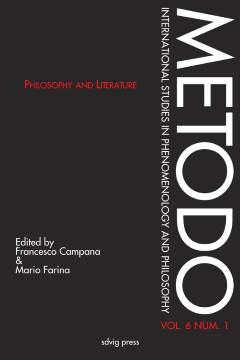Repository | Journal | Volume | Articles

(2018) Metodo 6 (1).
The destitution of words
the death of the author and the aporias of writing in Levinas's "Totality and Infinity"
Jakub Kowalewski
pp. 143-160
In this paper I examine the epistemological and the ethical consequences of what I call the belief in the death of the author. Drawing on Emmanuel Levinas’s Totality and Infinity, I argue that when separated from the writer’s intention, the written text becomes epistemically and ethically deficient. I then examine two aporias which emerge when the Levinasian analysis of writing is applied to Totality and Infinity qua a written text: if written signs are epistemically deficient, why should we trust Levinas’s written insights? Equally, if a written text is ethically flawed, how are we to understand the multiple accounts of Levinas’s commentators attesting to an ethical dimension of reading Totality and Infinity? I then suggest that the above aporias can offer a corrective to the epistemological and ethical consequences of the belief in the death of the author identified in the first part of the paper.
Publication details
Full citation:
Kowalewski, J. (2018). The destitution of words: the death of the author and the aporias of writing in Levinas's "Totality and Infinity". Metodo 6 (1), pp. 143-160.
This text is available for download in the following format(s)
This document is available at an external location. Please follow the link below. Hold the CTRL button to open the link in a new window.



